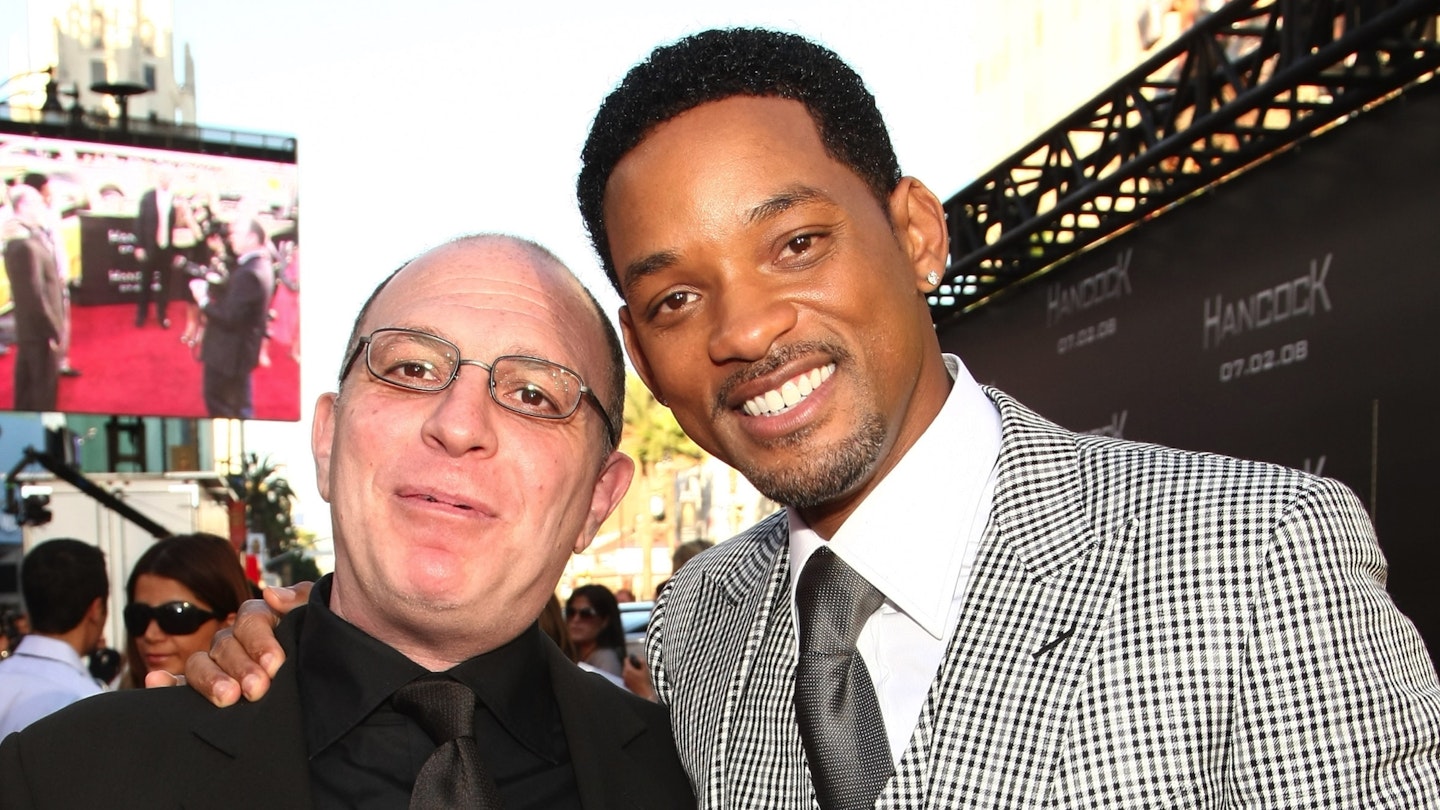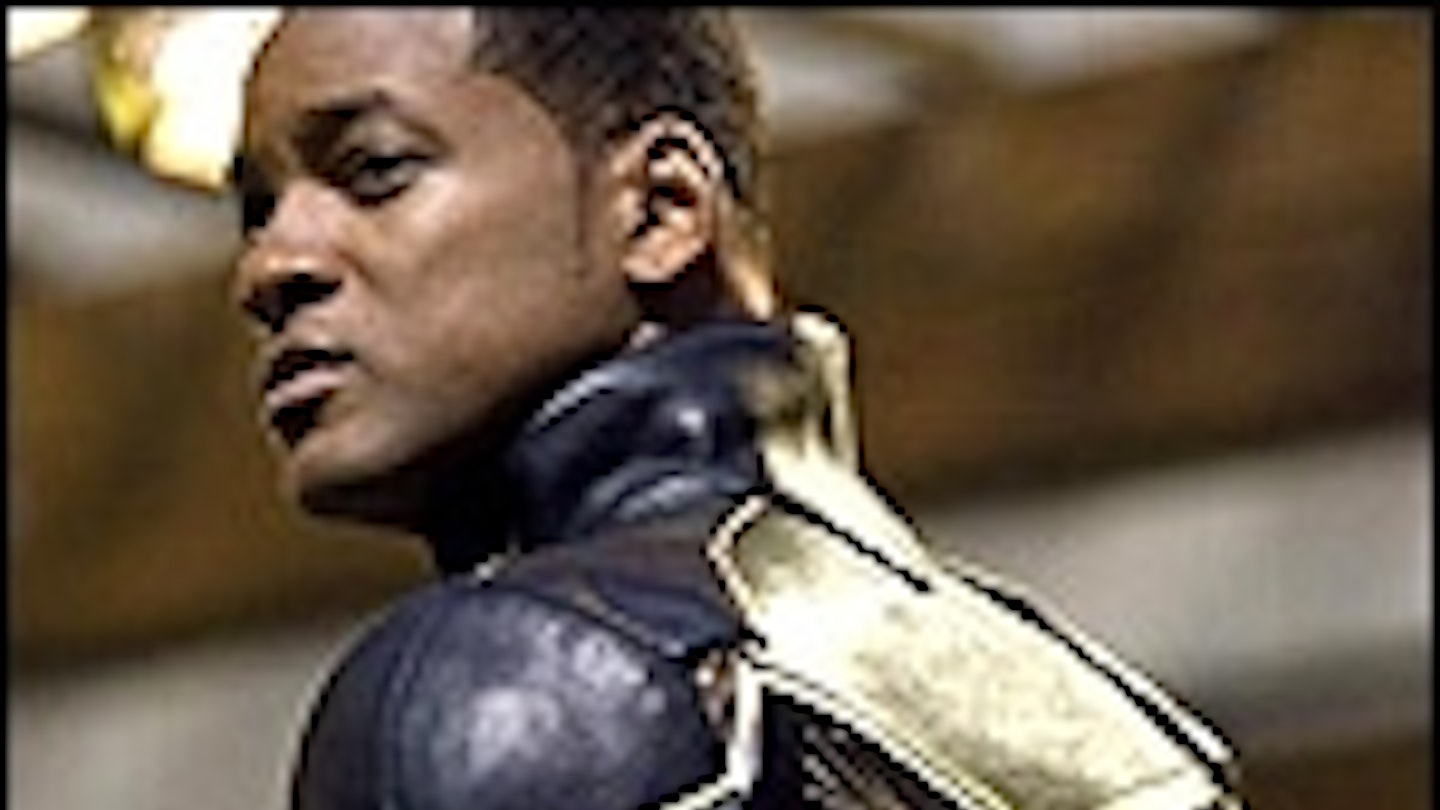It’s ironic that Hancock involves a public-relations campaign to modify the seedy truth about a down-and-out in order to sell a streamlined fable about a high-flying hero, since the movie has been seriously misrepresented by its advance publicity. The trailers, poster and ad images pull out snide gags (the whale-tossing, a remark about Hancock’s tight leather suit) and give the impression that Will Smith is following a recent run of fairly serious efforts with one of the lightweight, crowd-pleasing action comedies which made his name. As Smith’s drunken-idiot superhero blunders through the apprehension of a carload of speeding crooks, this feels like a (better) male-slob answer to My Super Ex-Girlfriend, and one vaguely expects Martin Lawrence to show up as Jimmy Olsen.
At some point in its lengthy development, Hancock was probably exactly that movie. A preview version was reportedly more knockabout, on the lines of Superhero Movie - including something in an earlier draft which addressed that age-old question of whether Lois (and the bedroom ceiling) would be in danger if Clark super-ejaculated inside her. The film also bears traces of a few more serious drafts, probably modelled on Unbreakable, and someone came in to serve the Bad Boys contingency, sprinkling crude laugh-lines throughout Smith’s dialogue - which at least raises a snicker when Hancock eyes a comic hero who isn’t quite the Mighty Thor (at least, so the lawyers would emphasise) and writes him off as “Norwegian homo”.
There was also probably a version which was cynical about the process of packaging a foul up as a hero. Here, instead of Will Success Spoil Rock Hunter? with X-ray vision, we get an unprecedented depiction of a publicist as the soul of decency who wants to create rather than sell a hero. This is so out of whack with screen depictions of the ad-pub biz, from Sweet Smell Of Success to Mad Men, that it’s almost heroic in itself, and Jason Bateman’s sweet, earnest performance (in the kind of role in which director Peter Berg used to specialise when he was an actor) subtly sells emotional beats between the explosions and head-up-the-ass gags.
Will Smith starts out looking like his character from The Pursuit Of Happyness after a few more months on the street, but shapes up into a slightly too conventional hero, with most of Superman’s powers and a costume of black leathers that even a mugger recognises as a Wolverine knock-off. As usual in tales of redemption, Hancock is more interesting when behaving badly - tossing a pre-teen bully played by the kid who was the young Michael Myers in the Halloween remake into the stratosphere, or doing the old Man Of Steel ‘more powerful than a locomotive’ act by standing on the tracks so that the train crashes to a stop around his immovable body as boxcars pile up for a mile or so along the track.
The film runs through its original story by the halfway point, when Hancock voluntarily goes to prison, knowing the city will need to release him the next time there’s a crisis. Then, Eddie Marsan is perfunctorily introduced as a low-rent Luthor and a major plot development derails the comedy and the interesting relationship between Hancock and Ray to foreground a surprisingly downbeat third act. Hancock’s backstory (he’s an amnesiac who woke up in hospital 80 years ago with two tickets to see Frankenstein in his pocket, and has taken his name from the American slang for signature) is promising, but opens the story in ways the film doesn’t follow through: if the authorities give the Hulk such a bad time and want to wipe out the X-mutants, why are no government spooks trying to get Hancock’s invulnerability secrets or recruiting him to take out Iran’s nuclear labs? During a rainswept, bloody final stand in a hospital, the film becomes indistinguishable from any other super-vigilante picture.







